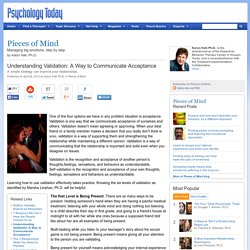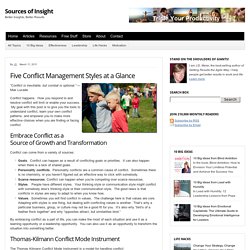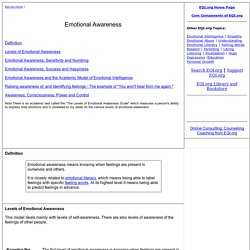

Understanding Validation: A Way to Communicate Acceptance. The first Level is Being Present.

There are so many ways to be present. Holding someone's hand when they are having a painful medical treatment, listening with your whole mind and doing nothing but listening to a child describe their day in first grade, and going to a friend's house at midnight to sit with her while she cries because a supposed friend told lies about her are all examples of being present. Multi-tasking while you listen to your teenager's story about his soccer game is not being present. Being present means giving all your attention to the person you are validating. Being present for yourself means acknowledging your internal experience and sitting with it rather than "running away" from it, avoiding it, or pushing it away.
Often one of the reasons other people are uncomfortable with intense emotion is that they don't know what to say. The second level of validation is Accurate Reflection. Five Conflict Management Styles at a Glance. “Conflict is inevitable, but combat is optional.” — Max Lucade Conflict happens.

How you respond to and resolve conflict will limit or enable your success. My goal with this post is to give you the tools to understand conflict, learn your own conflict patterns, and empower you to make more effective choices when you are finding or facing conflict. Embrace Conflict as a Source of Growth and Transformation Conflict can come from a variety of sources: Goals. By embracing conflict as a part of life, you can make the most of each situation and use it as a learning opportunity or a leadership opportunity. Thomas-Kilmann Conflict Mode Instrument The Thomas Kilmann Conflict Mode Instrument is a model for handling conflict: The model organizes five conflict management styles based on two dimensions: assertiveness and cooperativeness.
Five Conflict Management Styles Here are the five conflict management styles according to Thomas, K.W., and R.H. Photo by ashraful kadir. Are Your Expectations Setting You Up for Disappointment? “Waking up to who you are requires letting go of who you imagine yourself to be.”

~Alan Watts For a long time, I felt like I was standing on a riverbank just watching the water of life go by, too scared to jump in and play. I was waiting for the perfect current to come along that I could ride all the way to the completion of my intensely detailed life goals. I didn’t want to move until I felt like success was guaranteed and I was certain it was the “right” thing. Life was flowing, and I wasn’t doing anything. Around this time, I graduated engineering school and instead of feeling excited and free, I felt like a large weight was dropped on my shoulders. After all, I had an engineering degree.
The thing is, I couldn’t shake the feeling that the path of engineering in the traditional sense was not right for me. I expected myself to be successful, which eventually escaladed into expectations of perfection in all the areas of my life. That’s exactly what I did. Oh, this is so juicy! How to be assertive when someone is rude. Emotional Awareness. Awareness, Consciousness, Power and Control Today I had what I believe is an important insight.

I realized that the person who is more aware of feelings is more in control. (Psychologically, at least.) I came to this insight when I started thinking about a teacher at one of the schools I have been visiting fairly regularly. The last time I saw her she asked me: "Do you remember my name? " I was not very aware of my feelings at that point, nor was I consciously aware of her feelings. I could hear the hurt in her voice. As I reflected on the situation I regretted not saying "How would you feel if I said yes and how would you feel if I said no.
" I had a sense of how she was feeling and how she wanted me to feel when she asked the question. But even though I had a sense of all of this, I was not consciously aware of all of it. By asking this question, she took a position of authority. The person who asked me this question is more emotionally needy than I am.